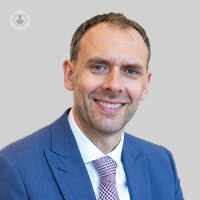How successful is hip replacement surgery?
Written in association with:Total hip replacement surgery is used to treat painful conditions of the hip, such as osteoarthritis, which otherwise cause pain in the groin, buttock, thigh or knee. This article explains just how successful the procedure is.

What is total hip replacement?
Total hip replacement is a widely undertaken surgical procedure to treat painful conditions of the hip, most commonly osteoarthritis. Hip problems generally cause pain felt in the groin, buttock, thigh or knee. The surgery is usually performed when the pain has become severe, has stopped responding to pain-killers and is limiting day to day activities or is disturbing sleep.
Hip replacement is generally a very successful procedure, currently, 80,000 hip replacements are undertaken each year in the UK. Modern hip replacements are very durable; 90 to 95 per cent of replacements performed would be expected to be functioning beyond 10 years and 80-85 per cent at 20 years.
Read more: why do hip replacements fail?
What is the average age for total hip replacement?
The average age for undergoing hip replacement is 66, with most procedures being undertaken in the 60 to 80 year age range. However, the success of the procedure means demand is increasing, particularly in the under 60s age group.
How does surgery work?
In simple terms, the procedure involves:
- Removing the ball (femoral head) and the worn-out lining of the socket (acetabulum);
- These are then replaced by implanting an artificial stem and socket;
- An artificial ball is placed on the stem and this articulates into the new socket to create the new hip joint;
- The surgery is performed through an incision at the top of the thigh after undergoing an anaesthetic.
What is recovery like following hip replacement surgery?
There has been a great recent focus on enhancing the recovery patients experience after hip replacement surgery. This includes educating the patient on what to expect, using modern anaesthetic methods to reduce pain and nausea and surgical techniques to minimise operating time and the trauma of the surgery.
The aim is to allow patients to return to normal as quickly as possible. Patients can eat and drink shortly after surgery and often mobilise on the day of the operation. Hospital stay is now often only two or three days. Following these, techniques leads to lower complication rates and higher patient satisfaction for total hip replacement.
Patients are usually walking independently on sticks and able to go up and down stairs by two to three days. Physiotherapists will help with this mobilisation and advise further exercises to be undertaken after discharge. Patients will usually be able to walk unaided between four and six weeks and return to driving in a similar timescale.
Book now with a Top Doctors specialist to discuss hip replacement surgery.



